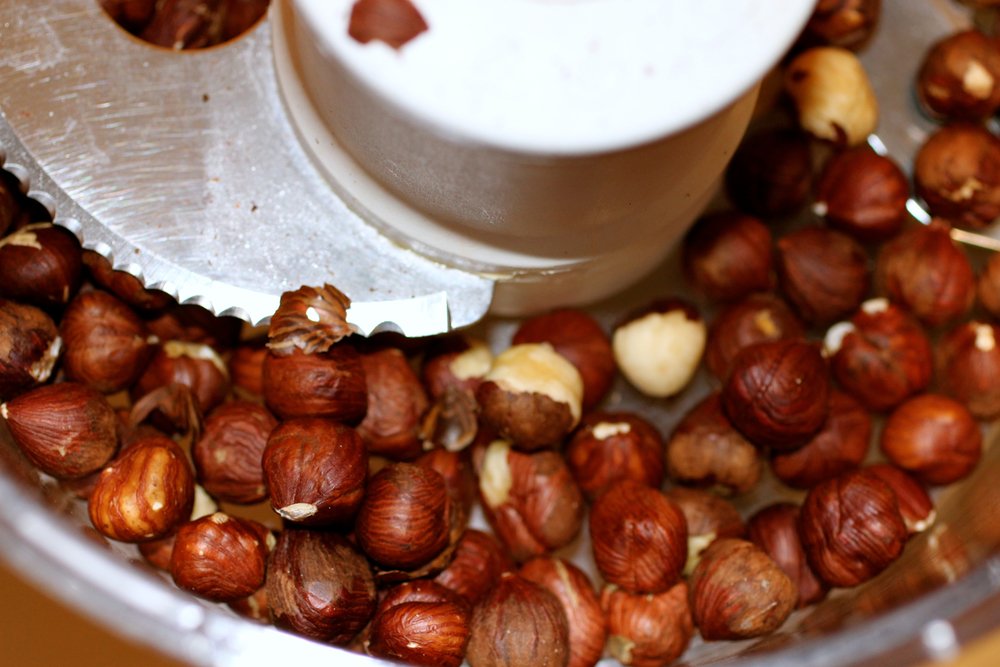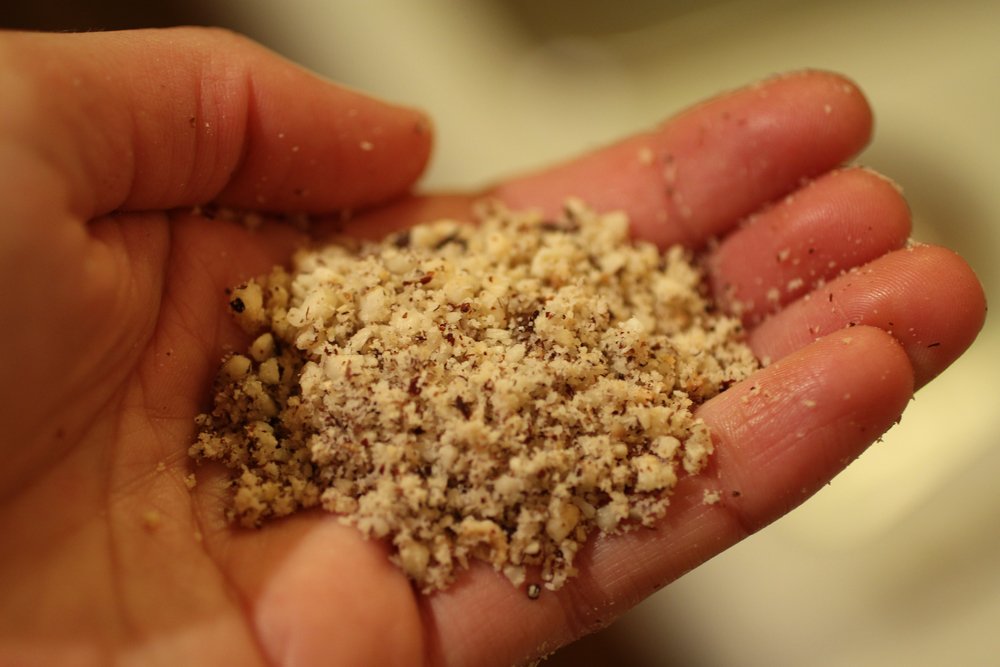Buckwheat Hazelnut Shortbread
Shortbread is called short bread because it is very high in fat, which gets in the way of gluten development, thus "shortening" the gluten strands. Gluten is a very strong and stretchy protein, so when a lot of fat gets in the way of its development, the tenderness and melt-in-your mouth effects increase. Food scientists wanted to capitalize on this so they created a fat product that shortens really well, in addition to being cheaper than butter and more solid and shelf-stable than vegetable oils. They call it shortening (naturally). However, in light of the fact that the trans fat in shortening is incredibly bad for your healthy and that butter tastes way better and is more sustainable, we will be using butter in our shortbread.
This twist on shortbread incorporates buckwheat flour and hazelnuts, producing a rustic, dark, and nutty cookie that is always a crowd-pleaser. Dough can be made in advance and frozen for later use. Makes 6 dozen cookies (recipe can be halved). “If you prefer a crispier crunch and more classic hazelnut shortbread, just replace the buckwheat flour with all-purpose flour, as buckwheat flour does absorb some moisture. ”
Blending hazelnuts in food processor.
1 cup hazelnuts (preferably raw, but I have done it with toasted - the shortbread is just…toastier!)
1-1/2 cup all-purpose flour
1/2 cup buckwheat flour
1 teaspoon baking powder
1 teaspoon sea salt
2/3 cup granulated sugar
16 tablespoons (2 sticks) unsalted butter, room temperature, diced
1 teaspoon vanilla
Hazelnuts post grinding.
Preheat oven to 350 degrees F.
Blend hazelnuts in food processor or with immersion blender until mostly fine, but with some medium-sizes coarse granules remaining, about 1 minute. Set aside.
Whisk all-purpose flour, buckwheat flour, baking powder, and salt in a medium bowl.
In large bowl, cut sugar into butter with fork, pastry blender, or hand blender until fluffy. Add vanilla and hazelnuts, mix to combine. Add flour mixture and blend until just incorporated.
Roll a ball, flatten, cover with plastic, and refrigerate 20 minutes. Remove from refrigerator and roll out onto lightly floured surface about 1/4” thick. Cut into rectangles about 1” x 2” and bake for 11-13 minutes until lightly toasted.





